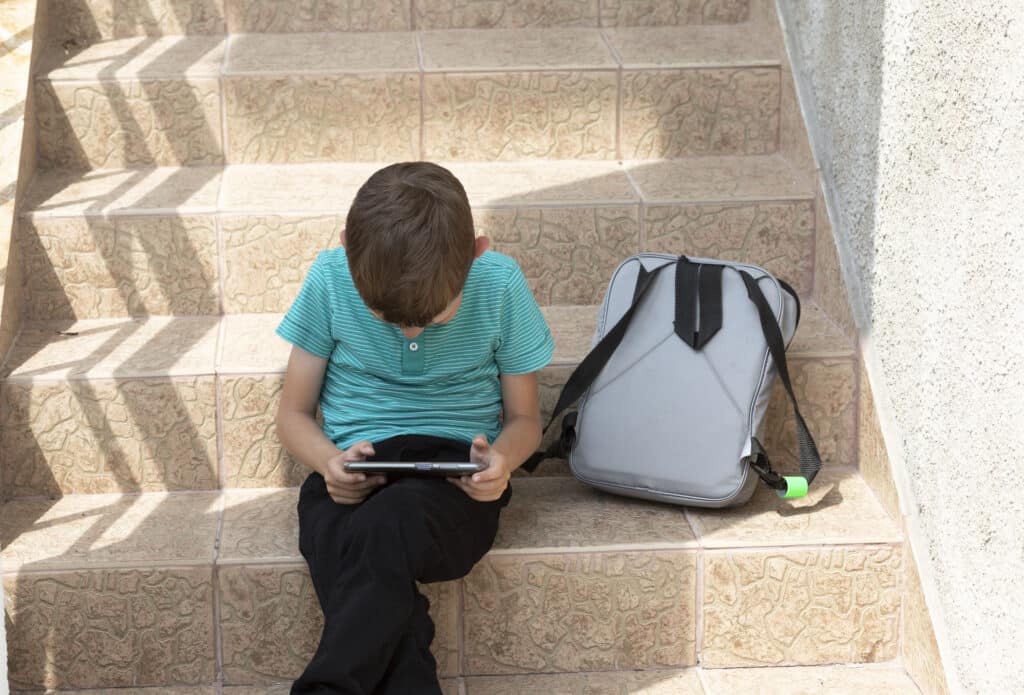2026 New Year’s Resolutions and the Personal Impact They Have
New Year’s resolutions have symbolized intention, reflection, and personal growth...


With school out, some families experience a sudden emptiness in the daily calendar, while others scramble to manage camps, travel, or work-from-home demands. Either way, summer can feel overwhelming in its own way – and true connection can get lost in the shuffle. Parenting today already presents unique challenges.
In a world where technology dominates and schedules are packed, nurturing deep connections with our children can be difficult. And during the summer months, when routines are loosened and unstructured time stretches out, this challenge can feel even more present. Yet amidst these changes, there is a silver lining. It’s still very much possible to foster a strong, healthy bond with your child, even in the face of a busy, tech-driven world and a long, unstructured summer break.

There’s no denying that technology is an integral part of daily life. From smartphones to tablets and social media, our children are growing up in a world deeply connected to the digital realm. While technology can provide learning opportunities and entertainment, it also presents significant challenges when it comes to bonding. And in summer, when free time stretches longer and boredom sets in more easily, excessive screen time can quietly creep in, limiting face-to-face interaction and leading to feelings of emotional distance.
The beginning of summer is a great time to start creating boundaries around screen time. Instead of banning screens altogether, which is often unrealistic for most families, the focus can shift to creating intentional limits and routines that support both connection and independence.
For example, you might keep mornings screen-free until after breakfast and outdoor play. These consistent windows give children a rhythm they can rely on.
For example, first outdoor time, then a show. First a craft or quiet play, then a video game. This keeps screens in balance with other types of stimulation.
You might say, “You can draw, do puzzles, or play outside while I make lunch.” Having a small menu of options gives kids autonomy without relying on screens as the default.

Let’s face it – many parents are still juggling remote work or work-from-home responsibilities while their children are on summer break. And it’s not realistic to expect kids to quietly entertain themselves all day without screens.
Here are ways to balance connection with reality.
Instead of constant, passive screen exposure, identify when screen time will actually help everyone: like during your work calls, focused writing time, or an important deadline window. Give your child a specific window and plan, like: “From 1 to 2:30 you can watch a movie while I finish work.”
It should include non-screen materials that they can rotate through independently. Think coloring books, audio stories, sticker puzzles, fidget bins, or magnetic tiles. Rotate items weekly to keep it fresh.
Help kids track time blocks (“When this timer is up, we’ll have snack and do something together.”). It builds patience and helps them anticipate connection.
Spend even 10–15 minutes fully present with your child before starting a work block. This “connection before separation” makes it easier for them to play independently and reduces clinginess or acting out.
While summer can offer more flexibility, it often comes with its own set of scheduling challenges. With routines shifted and days that feel wide open or overbooked, it’s easy for meaningful moments to slip by. Still, there are simple ways to create space for connection.
Here are some practical ways to nurture connection throughout the summer.
Whether it’s folding laundry together, prepping lunch, or walking to the park, these seemingly small windows offer beautiful opportunities to talk, laugh, and just be present with one another.
Set boundaries for your own responsibilities too. Try to carve out protected time each day where your full undivided attention belongs to your child.
Mark it like you would an appointment. Maybe it’s Tuesday afternoon beach trips or Saturday morning pancake making. It doesn’t have to be elaborate.
Summer is fleeting, and so is childhood. The warm weather, long days, and space for spontaneity provide the perfect backdrop to reinforce what really matters… our presence.
When you’re truly present (free from distractions), your child feels seen, valued, and emotionally safe. These moments build a sense of security and trust that lasts far beyond the summer.

Next time you’re with your child, consider this small but powerful challenge: put the phone down. Turn off the TV. Give your full attention. Make eye contact. These are the moments that shape connection and deepen the parent-child bond.
Jessica Miskiewicz is a Registered Clinical Counsellor, Psychotherapist and Owner of Journey Therapy. She provides therapy to parents across British Columbia who are navigating the emotional and behavioural challenges of raising children.
New Year’s resolutions have symbolized intention, reflection, and personal growth...

Trying to impress the Tween in your life? Here are a few gifts that are sure to please.

For some reason, the holidays always have a way of sneaking up on us. Then, before we know it, we get buried with an endless to-do list. seem to sneak up on us, and before we realize it, we’re buried under an endless to-do list. Here are 3 things to think about to determine if…
